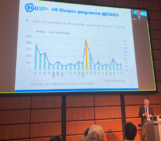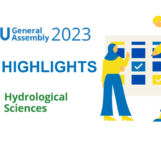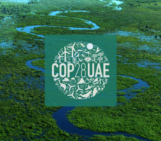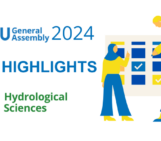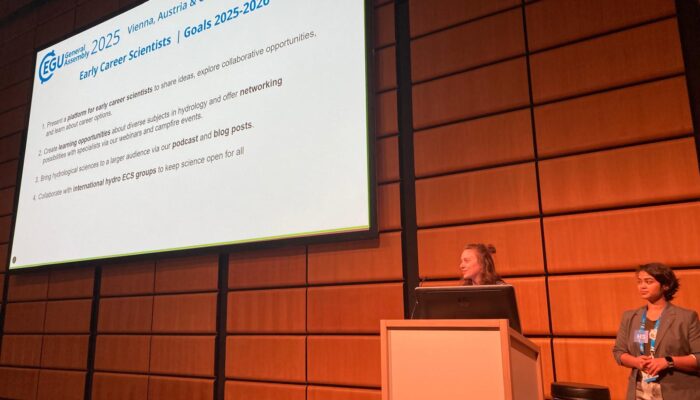
Melissa Reidy is a postdoctoral researcher at the Swedish University of Agricultural Sciences, Uppsala. For 2025, she is the Early Career Scientist Representative for the Hydrological Sciences division.
Can you tell us about the focus of your research?
A common theme throughout all my research has been connections between land and water. What has been different is the ecosystems that I’ve studied that in. It started in a fire-affected swamp in south-eastern Australia for my honours. During my PhD, I explored this in a boreal headwater catchment. And now I’m working in agricultural landscapes in southern Sweden, specifically asking whether irrigation dams are a climate-smart adaptation for these ecosystems.
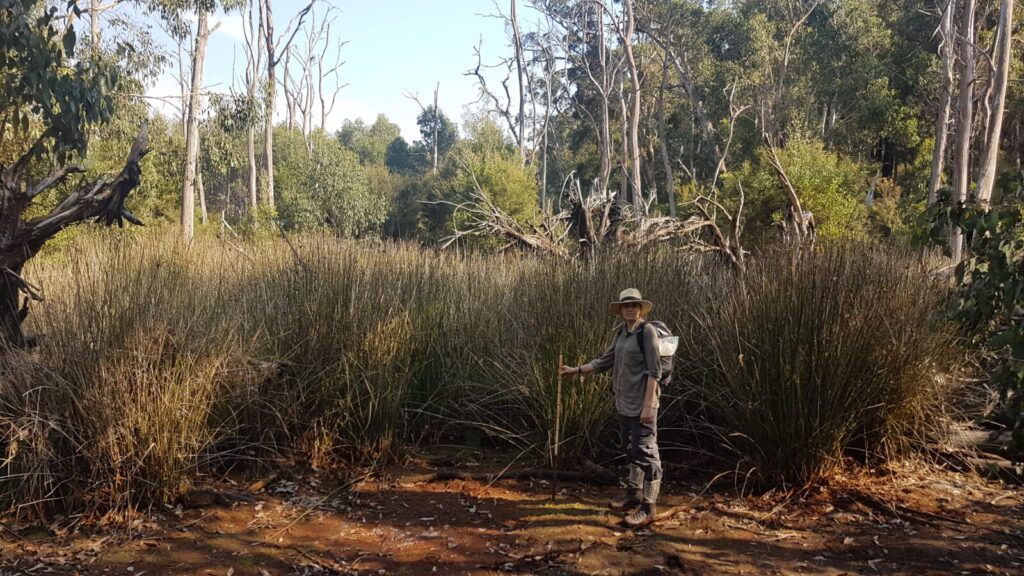
Melissa in her field work at Yeodene Swamp in 2019.
What originally inspired you to go into this field?
I like thinking about what’s under our feet. I did some soil subjects in my undergraduate degree then did a groundwater subject and just loved, and still love, that there are all these cool processes happening belowground. It’s so interesting that so much of what happens down there affects how we live up here.
Looking back, what was the most challenging aspect of your PhD and what was the most enjoyable?
The most challenging parts of my PhD weren’t actually anything to do with the science or research. It was really hard to continually navigate migration issues whilst working towards my PhD and it was an extra, almost invisible workload that made some periods of my PhD very very stressful.
The most enjoyable aspect was celebrating achievements with other PhD students in my department. I really really enjoy cheering on my colleagues when they present at conferences or receive grant funding or get their manuscripts accepted.
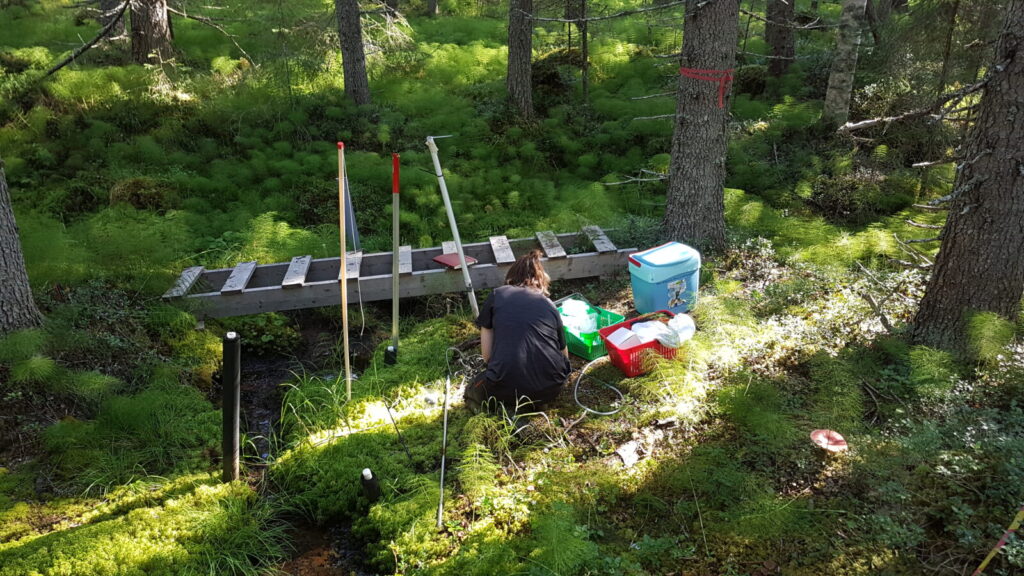
Sampling groundwater in Krycklan Catchment, Sweden, 2020
How was your experience of post-PhD life so far?
I defended in December 2024 but then started my postdoc in February 2025 so post-PhD life has been busy! I’ve moved cities and started in a whole new research environment in a whole new project. I’m really enjoying being able to say yes to different opportunities that I wouldn’t have had time to say yes to during my PhD.
What advice would you give to an Early Career Researcher about the challenges they might face in academic life?
To remember that there are lots of different pathways and options. There isn’t a single right way to have a scientific career, so it’s important to just follow your own pathway, even if that is a really squiggly path with lots of roundabouts and detours.
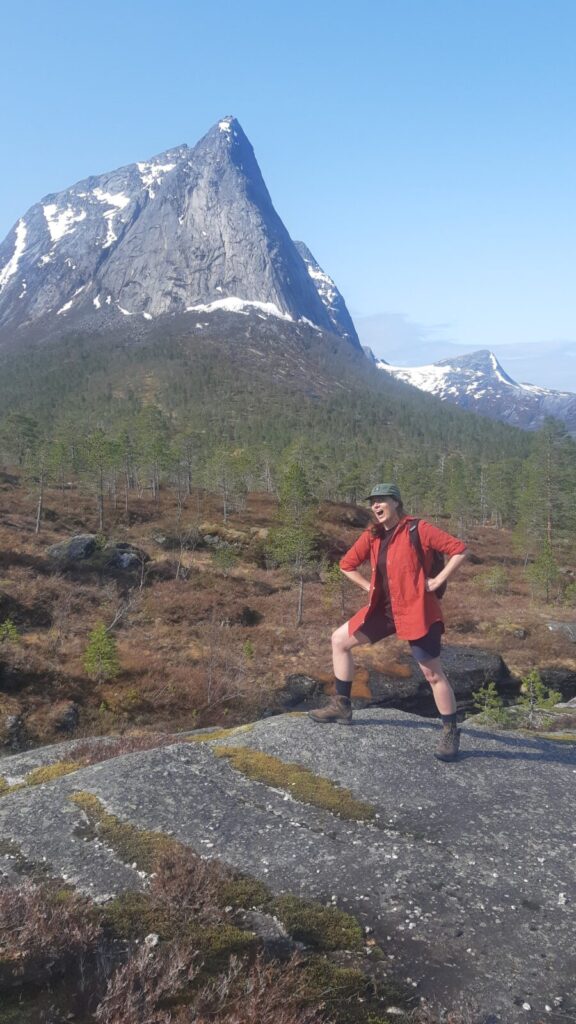
Leading students up a mountain in Norway, 2023
Why did you decide to become an Early Career Scientist Representative and how has being a part of the ECS team impacted you?
I started my PhD just as Covid took over the world. So for about two years I didn’t get to really go to conferences or network in-person outside of my institution. Then, due to just plain bad luck (eg. cancelled flights and migration laws) I didn’t get to go to any conferences in the final three years of my PhD. I really felt like I needed to branch out and find some new networks so I asked to be part of the ECS team and ended up as the ECS Representative. It’s been incredibly beneficial for me because I’ve learnt some new skills and found some new interests, but it’s also just been eye-opening to be exposed to so many different types of hydrological research.
What do you plan to achieve as the ECS rep this year?
I would really like to maintain the current work that our amazing ECS team in the HS division is doing. I’d also like to try out different ways of communicating science within the HS division. We have a great new podcast, and our blog, but we could explore some other options like photo or visual essays or video shorts.
What do you like about the role?
I like the chance to get to work with people in the ECS team and in the EGU who I otherwise might not have met! I like that we get to try new things as part of the ECS team. We get to have ideas about blog post topics or podcast interviewees and then go out and try them.
What advice would you give to other early career scientists who perhaps want to contribute to the ECS network but are hesitant?
ECS’s are the ones who can really drive changes in the current and future scientific generations. Research and academia can be an inclusive, diverse and adaptive field but only if we keep pushing for the changes that need to be made. My advice would be that any contribution from an ECS is valuable, whether that’s helping out in a webinar, or creating an interesting blogpost or being part of a committee. So just contact us and we’d love you to be involved!

